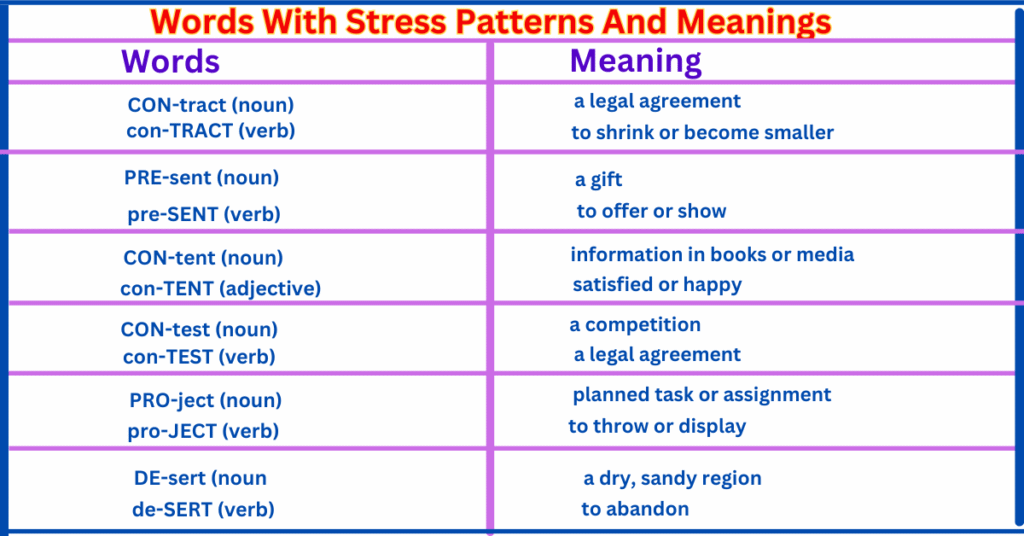How to Pronounce English Words Correctly: 10 Smart Tricks

Introduction:
Have you ever come across an English word and thought, “How should I say this word?” If your answer is yes, you’re not alone. Many people find it difficult to pronounce English words correctly. Words like colonel, chaos, or mischievous confuse even fluent speakers sometimes. This struggle is common to all those who are on the same journey to learn English and gain fluency.
At times, English spelling and pronunciation don’t match — and that can make learning way more difficult but here’s the good news:
By following some simple and smart techniques, you can pronounce English words clearly, correctly, and confidently.
In this friendly guide, I’ll share with you 10 powerful tricks to help you master English pronunciation, especially for those tricky words we all struggle with. Each trick is a tool to gain confidence in pronunciation — just what you need to sound better every day.
1. Break Words into Syllables
We are going to start with the easiest trick: Break words into syllables. This is especially helpful when you see a long or unfamiliar word. Instead of trying to say the whole word at once, break it down into smaller parts.
What’s a syllable?
A syllable is a unit of sound that contains a vowel. Every word has at least one syllable.
Examples:
- Comfortable → com-fort-a-ble
Sounds like: “kumf-tuh-bul” - Vegetable → veg-e-ta-ble
We say: “vej-tuh-bul” - February → Feb-ru-ar-y
Often spoken as: “Feb-yoo-air-ee” - Chocolate → Choc-o-late
But said as: “chawk-lit”
Practice:
Pick any long word from any English book or newspaper. Break it into parts. Break it down into syllables. Then, combine them to pronounce English words clearly and confidently.
2. Use Online Tools With Audio to Hear the Word
Reading a word is not always helpful in pronouncing English words correctly. Therefore, we may have to take help of online tools — they let you hear native pronunciation.
Recommended Tools:
- Google Search: Type “pronounce [word]”
→ Example: Pronounce entrepreneur - Cambridge Dictionary Online: Gives IPA symbols + UK and US pronunciations.
Try it with:
- Entrepreneur → “ahn-truh-pruh-nur”
- Debris → “duh-bree” (silent ‘s’)
- Ballet → “ba-lay” (from French)
Listening is key to learning how to pronounce English words correctly. Try to listen and repeat every day. Also, pay attention to how your tongue, and other parts of mouth should be used to utter different sounds.
3. Record Yourself Speaking
Recording yourself can be a real eye-opener because we may think that we are speaking words correctly; but actually, the sounds are different from the standard pronunciation.
Why it works:
- You can compare your voice to native pronunciation
- You hear your own errors and can fix them easily
- Builds confidence as you track your improvement
How to do it:
- Open your phone’s voice recorder
- Speak a tricky word (e.g., “Colonel”)
- Compare it with a native version
- Adjust and repeat
- Practice using the word in a sentence
Example:
Word: Colonel → “ker-nul”
Sentence: The colonel gave the order to start the mission.
Try this with 3 new words daily to improve how you pronounce English words.
4. Practice With Minimal Pairs
Some English sounds seem quite similar — one small difference can completely change the word. These are called minimal pairs.
Examples:
- Ship vs. Sheep
- Bet vs. Bat
- Sit vs. Seat
- Pen vs. Pan
- Full vs. Fool
How to practice:
- Say each pair slowly and clearly
- Focus on mouth shape and tongue position
- Repeat 5 times
- Record yourself and listen to match with correct pronunciation
This hones your ability to pronounce English words correctly — especially vowel sounds.
5. Watch and Repeat From Movies or Shows
This way you can learn pronunciation while having fun? Use English movies or shows to learn pronunciation from.
What to do:
- Choose a scene with dialogue
- Turn on English subtitles
- Pause after each sentence
- Repeat the sentence with the same rhythm, pitch and intonation
Example:
From Friends:
“How you doin’?” — Joey’s famous line
From Harry Potter:
“You’re a wizard, Harry.”
You’ll learn to pronounce English words naturally; and also pick up intonation, stress, and flow.
6. Understand Stress and Intonation
In English, we don’t stress all syllables equally. Some are louder, longer, or clearer. Learning stress and intonation is crucial to sound natural.
Word Stress Example:
- PRE-sent (noun) → a gift
- pre-SENT (verb) → to offer
- IN-sult (noun) → a rude comment
- in-SULT (verb) → to disrespect someone

Sentence Stress:
Compare these:
- I didn’t say YOU stole the money.
- I didn’t say you STOLE the money.
(Each version changes meaning)
Listen to native speakers. Try copying their stress and pitch. Initially, it may be difficult to understand these nuances but constant practice can help you pronounce English words in a natural and fluent way.
7. Learn Basic IPA (International Phonetic Alphabet)
IPA is the trusted source that shows how words actually sound. Even learning just 15–20 IPA symbols will make a big difference in helping you pronounce English words better. To understand IPA you must learn to understand phonetic symbols.
Examples:
- Enough = /ɪˈnʌf/
- Choir = /ˈkwaɪər/
- Island = /ˈaɪ.lənd/
- Debt = /det/ (silent ‘b’)
- Sword = /sɔːrd/ (silent ‘w’)
Get a simple IPA chart for English learners and refer to it while checking dictionary entries. This can help you get the correct pronunciation of every word.
8. Use Tongue Twisters to Strengthen Your Mouth
Tongue twisters are like exercises for your mouth, lips, and tongue — making your speech clearer and fluent.
Try these:
- “She sells seashells by the seashore.”
- “Red lorry, yellow lorry.”
- “A proper copper coffee pot.”
- “Unique New York.”
Start slowly, say each word clearly, and then pick up speed.
Do this for 5 minutes daily to help you pronounce English words more fluently.
9. Build a Personal Pronunciation Word List
Keep a running list of difficult or confusing words you hear anywhere. This list and its regular practice can save you from embarrassing situations.
Steps:
- Write down the word
- Note the correct pronunciation
- Practice 3 times a day
- Use the word in your own sentence
| Word | Pronunciation | Sentence Example |
| Recipe | “res-uh-pee” | I found a great cake recipe online. |
| Debris | “duh-bree” | After the storm, debris was everywhere. |
| Subtle | “suh-tl” | There was a subtle change in his tone. |
| Chaos | “kay-oss” | There was chaos in the kitchen! |
| Mischievous | “mis-chuh-vus” | His mischievous smile gave away the plan. |
Over time, this list becomes your personal guide to help you pronounce English words better and faster.
10. Practice Every Day — Just 10–15 Minutes
Daily practice can bring about faster results. You don’t need hours — consistency is what matters.
Daily Routine (10 Minutes):
- ✅ Pick 5 new words
- ✅ Listen to their pronunciation
- ✅ Say each word 3 times
- ✅ Record yourself
- ✅ Use them in a sentence
Example Schedule:
| Time | Task |
| 9:00 AM | Listen to 3 new words |
| 1:00 PM | Repeat and record |
| 7:00 PM | Use each word in a sentence |
Follow this schedule for 30 days and your ability to pronounce English words will noticeably improve!
Bonus Tip: Join English Speaking Communities
Learning together is more fun and effective! Join groups where people practice English, on a regular basis.
Try:
- WhatsApp or Telegram English speaking groups
- Facebook speaking clubs
- Clubhouse English rooms
- Apps for language partners
When you speak regularly, you get real-time feedback and more confidence to pronounce English words accurately in conversations.
Frequently Asked Questions (FAQs)
1. Why is it so difficult to pronounce English words correctly?
English is tricky because many words are not pronounced the way they are spelled. Silent letters, stress patterns, and accents often confuse learners. That’s why learning how to pronounce English words correctly for beginners requires practice with audio and examples.
2. How can I practice correct English pronunciation words at home?
You can listen to native speakers, repeat after them, record your own voice, and compare. Using a correct English pronunciation app or free tools like pronounce English words Google search (speaker icon) helps you practice every day.
3. Is there an app to help me pronounce English words correctly?
Yes! Many learners use a pronounce English words app or a correct English pronunciation app. These apps usually give audio, phonetic spelling, and slow-speed practice so you can master difficult sounds.
4. Can I learn how to pronounce English words correctly with audio?
Absolutely. Audio is the best way to train your ear and mouth. Many platforms let you click and hear how to pronounce English words correctly with audio, so you can copy the exact sound and rhythm.
5. How do beginners start learning to pronounce English words?
If you are new, focus on listening first. Start with short, simple, and English correct pronunciation words. Repeat slowly, use online resources, and practice with a tutor or app designed for how to pronounce English words correctly for beginners.
6. Is it better to use a dictionary or Google to check pronunciation?
Both are useful. Dictionaries show phonetic symbols, while pronounce English words Google is easier for quick audio. Just type the word and press the speaker icon to hear how natives say it.
7. Are online tools enough to pronounce English words correctly?
Online tools are a great start. You can pronounce English words online with websites and apps, but combining them with real-life speaking practice gives the best results.
8. Why do some apps say a word differently than others?
English has different accents—American, British, Australian, etc. So, when you use a pronounce English words app, you might hear slight variations. Choose the accent you prefer or the one most useful for your goals.
9. How long does it take to pronounce English words correctly?
It depends on practice. With daily use of correct English pronunciation apps and repeating English correct pronunciation words, learners often improve within weeks.
10. What is the fastest way to master English pronunciation?
The fastest way is daily listening and speaking. Use a pronounce English words app for practice, check with Google pronunciation, and focus on how to pronounce English words correctly with audio. Recording yourself and comparing makes learning even faster.
Conclusion:
English pronunciation doesn’t have to be stressful. Every speaker struggles with getting the correct pronunciation of words— it’s part of learning.
Just remember:
✅ Break the word down
✅ Listen to native audio
✅ Record your voice
✅ Practice minimal pairs
✅ Learn from shows and movies
✅ Study stress and intonation
✅ Get familiar with IPA
✅ Try fun tongue twisters
✅ Build your own word list
✅ And most importantly — practice daily!
Your goal isn’t perfection. It’s progress. And every effort counts.
So go ahead — speak that difficult word out loud right now.
Repeat it.
Smile.
You’re on your way to confidently pronounce English words like a pro!
Share your thoughts:
Which of the above mentioned techniques would you like to try first? Share your thoughts in the comment section. Also, don’t forget to subscribe to the blog for more such useful content.
I create content to make English learning simple and practical. If you find it helpful, consider supporting me Your contribution helps me improve my skills and bring better content for you.




Interesting analysis! Solid points all around.
Keep coming back for more!
Interesting read! Solid analysis here!
Thank you for your feedback!
I dugg some of you post as I cerebrated they were very helpful extremely helpful
Thanks!
hey there and thank you in your info – I have certainly picked up something new from right here. I did on the other hand expertise a few technical issues using this web site, as I experienced to reload the site lots of occasions previous to I could get it to load properly. I have been wondering in case your web host is OK? No longer that I’m complaining, but slow loading cases occasions will sometimes affect your placement in google and could damage your quality ranking if ads and ***********|advertising|advertising|advertising and *********** with Adwords. Anyway I am including this RSS to my e-mail and can look out for a lot extra of your respective fascinating content. Make sure you replace this once more soon..
Well noted! Thanks.